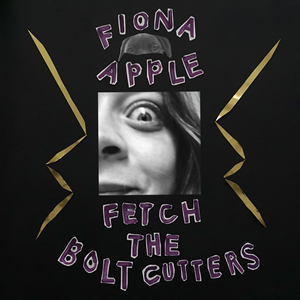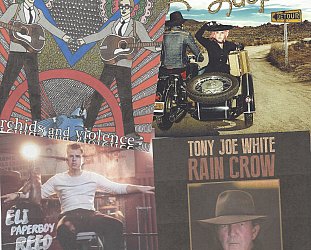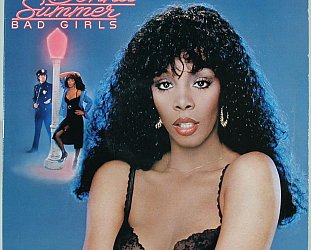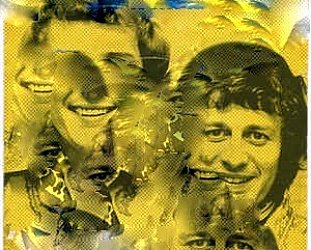Graham Reid | | 2 min read

But first, this . . .
When music writers offer reference points for an album, they can fall at a couple of hurdles.
First, the references will only be useful if the reader knows them.
Saying something sounds like Dark Side of the Moon or Like a Virgin might be a safe bet, but with this new album by Fiona Apple we here at Elsewhere are finely slicing into some more difficult references (we'll get to Toms Ze and Waits, Edie Brickell and others soon)
The second and higher hurdle to referencing is this: some may assume from what is said that the artist is just pulling into the present various pieces of the past, like some post-modern musical jigsaw puzzle.
Certainly some artists do that: Noel Gallagher's admiration of the Beatles was such that he once commented he was surprised Paul McCartney didn't sue him. And accusations of originality could hardly have been thrown at the first Strokes album, enjoyable though it was. (Their latest is terrific incidentally.)
But what retro-referencing (if that's what it is) or pastiches of the past doesn't take into account is that the artist might just have come to this point on their own, and be unaware of any such heritage.
So we proceed with caution when it comes to Fiona Apple's excellent fifth album Fetch the Bolt Cutters because while we can make some parallel or prior references they are more by way of analogy and clues for the reader rather than insisting she is appropriating or even inspired by them.
Quite clearly she is her own woman and this collection of quirky, engaging, personal and cleverly arranged songs stands apart from most albums around right now.
We can certainly say at times she explores sonic effects in a manner which Tom Ze brought to his early Tropicalia, delivers a lyrical pop-blues on the opener I Want You to Love Me (which has a coda of Yoko Ono-like vocalisation) and sometimes there's a gospel spirit too (Cosmonauts).
At times she offers a tuneful, almost spoken word reflection (the self-empowerment of the title track and the excellent Under the Table), a beat which echoes a kind of Afro-influenced skipping/clapping game rhythm (the angry Relay) and the drumming on On I Go wouldn't have sounded out of place on Fleetwood Mac's Tusk.
Percussion from various raw sources pins down most of these pieces like the ridiculously catchy and quirky Shameika which stands out early on (a girl at school who tells the sullen and aggressive Apple that she has potential).
There is a lot of female empowerment, questioning and feminist thought here, and much of it is self-directed – she split from her partner but this deals with bigger ideas – as the problems and perspectives are being worked out: Ladies and Heavy Balloons – the latter about suffering from depression – are worth hearing in this regard.
For Her with her multi-tracked a cappella vocals and a chant is bluntly addressed to an abusive man.
Musically, there's a home-crafted, improvised feel to this album which brings it through as something different and beyond easy categorization.
As musically expansive and unconstrained as Nina Simone and lyrically as constantly revelatory as a more earthbound Laurie Anderson, Fetch the Bolt Cutters is almost akin to Tom Waits on his bridge between barfly and sonic experimentalist, somewhere near the poetic end of early Suzanne Vega and Edie Brickell with a touch of the slippery boho- jazz of Rickie Lee Jones, and . . .
It might also be a damn fine post-hip hop album.
These references are mere pointers to hopefully seduce you into hearing Fetch the Bolt Cutters.
All you really need to know is what we said at the start: one of the best albums released so far this year.
.
You can hear this album at Spotify here.





post a comment